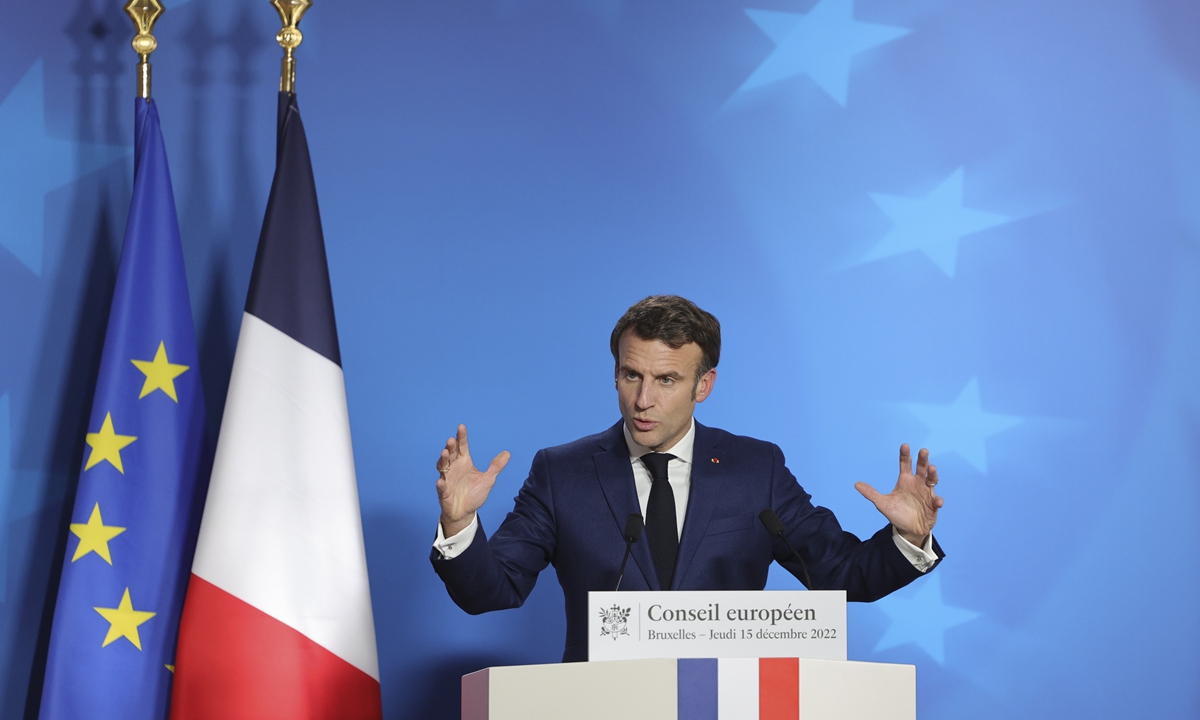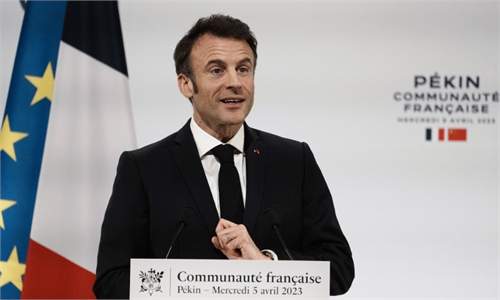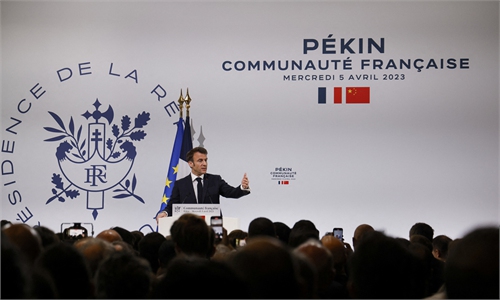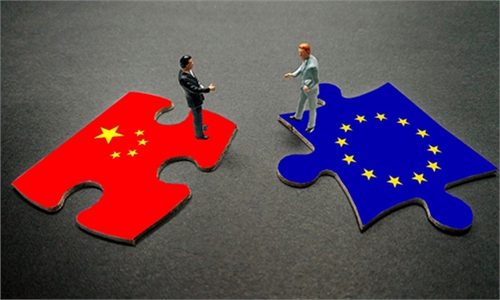Following Macron, more Europeans awaken to US coercion, outspoken on ‘strategic autonomy’

French President Emmanuel Macron speaks at an EU summit in Brussels on December 15, 2022, where leaders discussed issues including the response to the US' Inflation Reduction Act. The EU would have to move more quickly to head off the threat to its industry from planned US subsidies, Macron says. Photo: VCG
How far can Europe go on the path of strategic autonomy? After French President Emmanuel Macron reminded Europe to resist pressure to become a US follower in an interview on his plane back from a state visit to China, some European leaders have thrown their weight behind the stance. On Tuesday, European Council President Charles Michel joined the league, saying European leaders are becoming increasingly favorable toward Macron's push for "strategic autonomy."Suggesting that Macron's position was not isolated among EU leaders, Michel noted his views reflect a growing shift among EU leaders, Politico reported on Tuesday.
Yes, some Europeans are going through a shift in mindset after realizing they are dealing with a selfish backstabber, a master of command and coercion, who is supposed to be a friend and an ally.
Coercion is not an exaggeration. Just see the US' backlash after Macron's remarks. Take US Senator Marco Rubio. In a released video, he repeatedly questioned whether Macron speaks for all of Europe and if it is not going to pick sides over the Taiwan question, the US should consider focusing its foreign policy on containing China and leave Europe to handle the war in Ukraine.
If Rubio wants to talk about the Russia-Ukraine conflict, why doesn't he name some examples on what the US has done for the EU after the latter lost its largest energy supplier, and has to bear the burden of the war, sanctions, refugees and energy shortages? The US did make some efforts - selling liquefied natural gas to Europe at a price four times higher than on the US home market; absorbing US capitals and manufacturers to its own soil; issuing US Inflation Reduction Act that discriminates against EU producers and exports. This is not what an ally is supposed to do.
US' coercion toward the EU is a long-term reality, because Washington has comprehensively taken Brussels under a tight grip.
First, the US controls NATO, thus in turn controls European military defense and security almost completely. Second, the US has been roping EU in to create a new cold war, dividing the world via hyping ideological differences, even if this is not in the interest of Europe. Moreover, the US always prioritizes unilateralism and places its own interests above that of Europe, forcing Europe to accept US-led economic and trade policies and related trade rules. When necessary, the US would blatantly sacrifice Europe's interests, Gao Jian, director of the Center for European Think Tank Studies at Shanghai International Studies University, told the Global Times.
So when seeing Macron's visit to China, consolidating ties with and inking big deals in China, which all go against US' will and interests, some American observers are having a meltdown. Take the New York Times, which on April 8 published an article entitled, "French Diplomacy Undercuts US Efforts to Rein China In."
Song Luzheng, a research fellow of political studies at the China Institute of Fudan University, told the Global Times that the US cannot tolerate China and the EU, two of the most crucial powers in the world, to become closer, and that the US wishes for a Europe without Russia and a Eurasian continent without China. That's why some US politicians and media outlets are talking like they just had sour grapes to drive a wedge between China and France, China and the EU, attempting to suppress any rational views which are emerging in the European public opinion field.
Some US media outlets mock Macron, saying he was playing "the Gaullist card," while some analysts compare him to Neville Chamberlain, the former British prime minister known for his foreign policy of appeasement. The truth is, Macron is simply a Europeanist, experts said. More and more European leaders are becoming outspoken about European strategic autonomy, even though they are still in the minority. But they have at least made one point - Europeans should no longer sacrifice their own interests for others.
Europe is facing multiple challenges in social governance, and needs to fix its own problems first. It needs development and prosperity. To do so, Europe has no other choice but to embrace Eurasia with greater connectivity, develop bilateral economic and trade relations with countries like China, and rebuild its ties with Russia, Gao said.
The EU is confronted with two options: One, continue to endure the control of the US and engage in a confrontation between different camps, which could easily lead to another cold war; two, take European fate in its own hands and promote win-win cooperation with everyone.
The silence of rational voices on China in Europe is now broken. France and the rest of Europe are struggling yet still making progress. The EU is now at a junction again between the path toward confrontation and the one toward development. How it will choose is worth anticipating.
The author is a reporter with the Global Times. opinion@globaltimes.com.cn



